Aaron Klein believes the United States can recover lost time in building, repairing and maintaining its infrastructure by overcoming divisions among states and encouraging the participation of private investors. He cites an infrastructure bank, as proposed by President-elect Donald Trump, as one way to do it.
What do you think about the idea of an infrastructure bank? Do you think that Donald Trump is going to set one up?
«The idea of creating a national infrastructure bank in the United States has been around for more than a decade. There are versions of such a bank that would be very positive for the U.S. and allow needed additional investment in infrastructure to occur.»
What are the real opportunities for such a bank?
«Unlike most of the world that relies on project finance for infrastructure, the U.S. uses a combination of federal grants and state and local government general finance. One result has been a lack of infrastructure that crosses states and local boundaries and that connects multiple modes of infrastructure. An infrastructure bank could unlock many of these problems, mixing the positives of project finance with wiser project selection.»
In the U.S. there is a big lack of infrastructure. If the government does not act in time, in the next 10 to 20 years we are going to have big issues. By 2020, the deterioration in infrastructure will cost $912 for every U.S. citizen. By 2040, the cost may triple from 2020. What are your thoughts on this outlook?
«We already have a huge problem as a result of under-investment in the nation’s infrastructure. There is a silent tax eating at American families’ pocket books as a result of our infrastructure deficit. People spend $500 to $1,000 a year in extra car maintenance costs as a result of poorly maintained roads in many parts of America today. People waste 40-plus hours a year stuck in traffic. This will only get worse without well-targeted additional infrastructure investment.»

Capitol Hill
What is the economic impact of infrastructure spending?
«There is a short-term increase in terms of job creation. Infrastructure creates quality, middle class jobs, with about 60% of new jobs in construction and another 15% in manufacturing. In the long run, wise infrastructure investments can benefit businesses and consumers. Those benefits are not always where you expect them. An improvement at the port of Seattle that allows refrigerated cargo to move more quickly will end up greatly benefiting cattle ranchers 1,000 kilometers away in Montana who are exporting beef to Asia.»
Do you think that a partnership between the public and the private could be a great opportunity for developing the infrastructure in the 21st century?
« Infrastructure at its best is usually a public-private partnership. We build ports that private ships use, roads that private cars drive on, and trains that ship goods and people for commercial purposes. Evolving that partnership in new ways can help unlock additional sources of capital to invest in more infrastructure and better align incentives so that the infrastructure is used more wisely.»


